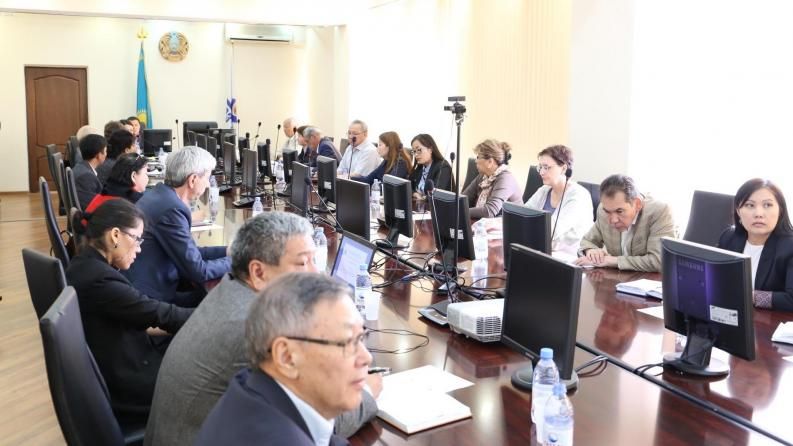Some aspects of implementing the trilingual education program in the technical universities of the Republic of Kazakhstan

The trilingual educational program which is being introduced in Kazakhstan envisages simultaneous teaching in three languages. «Trilingualism» is the study of the Kazakh language as the state language, Russian – as the language of interethnical communication and English – as the language of a successful integration into the global economy.
The English language department initiated, organized and on the 11th of May held the round table that focused on the implementation of the trilingual education program at K.I. Satpaev KazNRTU, with a particular emphasis on the extent to which the student body, the faculty and the departments providing logistical support are prepared to do that.
The presenters discussed the main provisions of the state program of multilingual education in the Republic of Kazakhstan (Lyudmila Smirnova, professor of the English language department), approaches to teaching English to technical university students (Birzhan Zhumagaliev, Ph.D., associate professor of IT and IITT Department), different aspects of teaching mathematical disciplines in English (Auzhan Sakabekov, Professor of Mathematics, Raushan Keltenova, Head of Mathematics Department), characteristic features of credit technology (Rinat Iskakov, vice-rector for academic affairs of KazNRTU), as well as the problems of implementing the level system of teaching English at KazNRTU from the perspective of the students (Lyudmila Smirnova, professor of the English language department) and the faculty (Saule Abdygapparova, professor of the English language department).
The research carried out at the English language department has helped to identify the three main problems most of the higher educational institutions in Kazakhstan are currently facing. Firstly, it is the quality of teaching languages in secondary schools and an inadequate assessment of school graduates’ knowledge and skills. Only about 30% of the KazNRTU first-year students have the school threshold level of English (A2). As a result, the university English language teachers have to close the gaps in the student knowledge at the expense of the university language program. The second problem is the quality of teacher training. The class observations conducted by a group of the English language department lecturers have demonstrated the major areas of difficulties young university teachers experience. Among them a lack of the basic methodological knowledge and in some cases inappropriate level of language proficiency, which results in the third problem, namely, a low level of the students’ skills and competencies.
The round table participants unanimously agreed on the importance of interdisciplinary connections and a necessity of a close interaction between the English language department and the departments teaching professional disciplines in English. A number of recommendations aimed at making the implementation of the trilingual program more efficient have been made. They include conducting an entrance diagnostic English language test, creating the database of Kazakhstani schools with low competence indicators of their graduates, preparing students for the participation in the academic mobility programs, upgrading the university faculty professional skills through workshops, seminars and trainings conducted by both local and external experts in the field of higher education, pedagogics and methodology.










